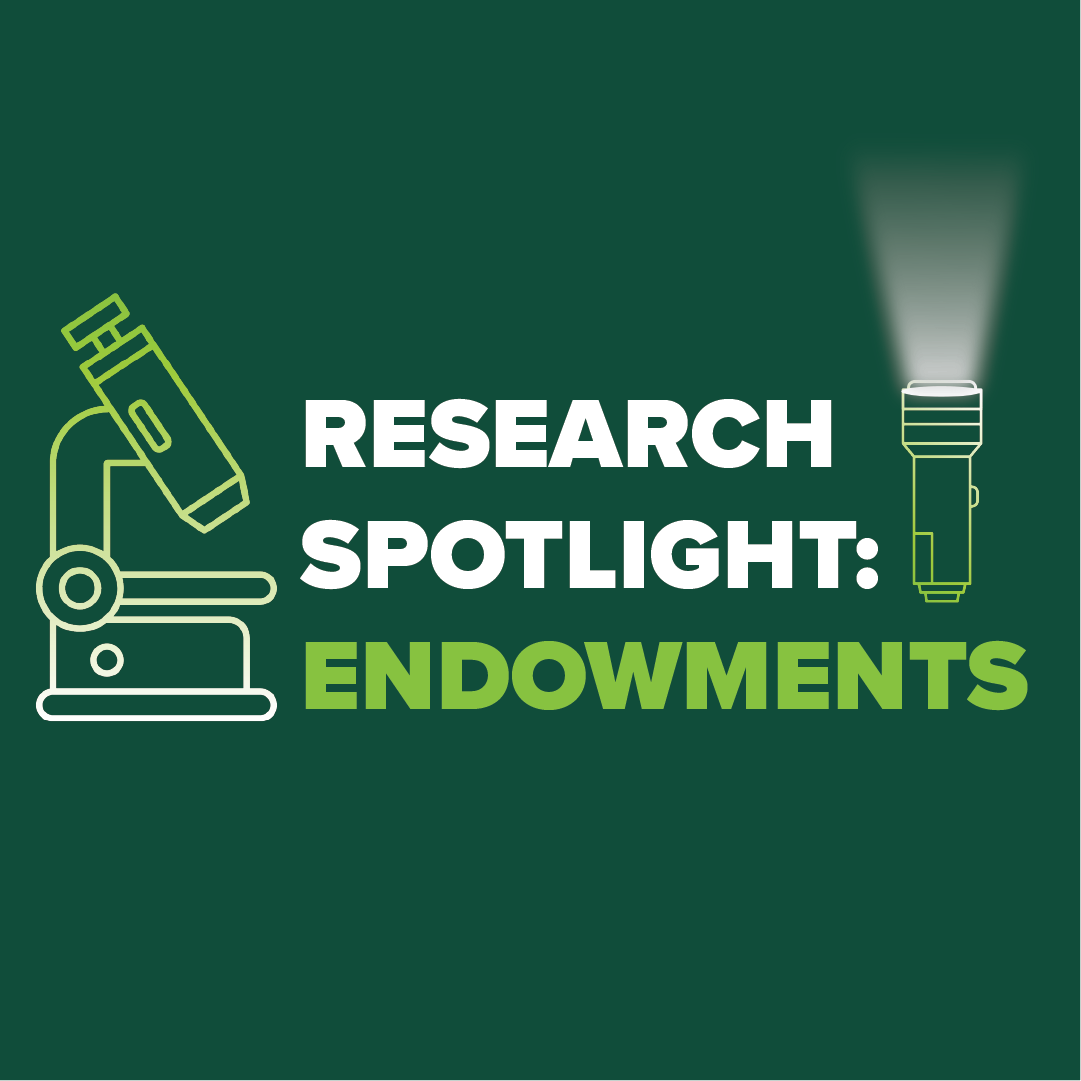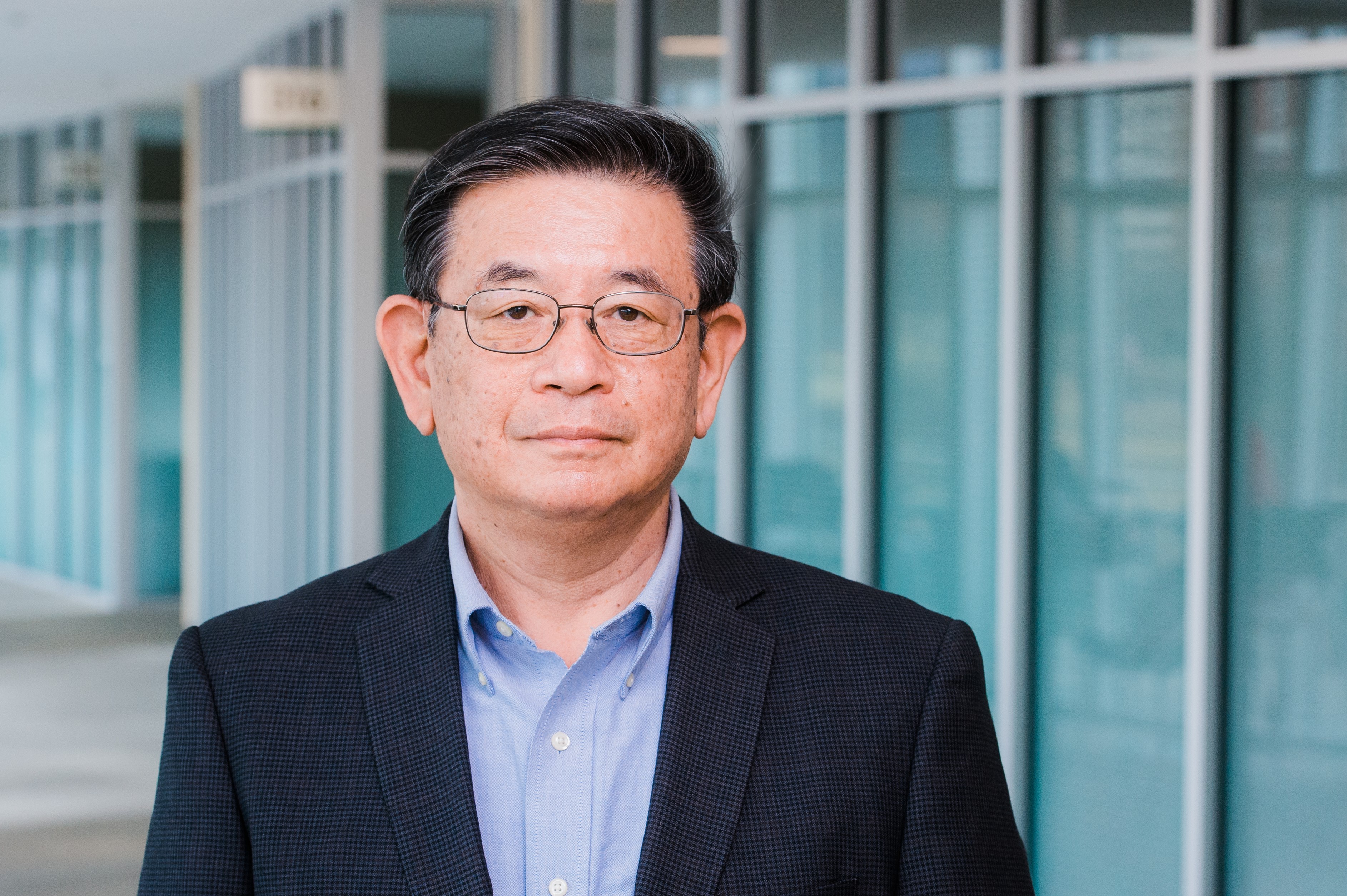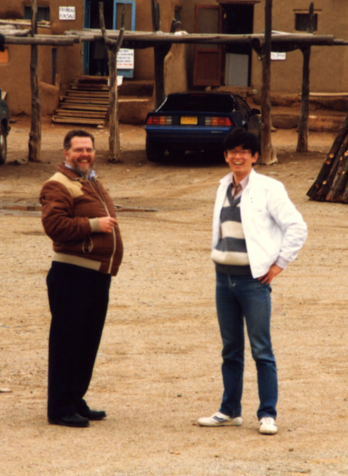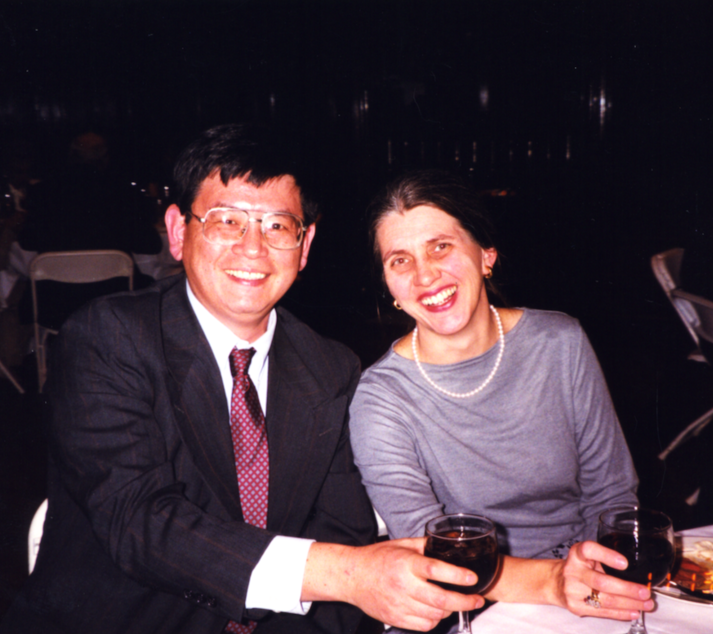Written by Christina Crowe
 In this series, we spotlight several researchers in the Department of Pathology who hold endowed professorships and, in one case, a chair. We recognize each of these individuals for his or her dedication to and innovation in their respective fields of study.
In this series, we spotlight several researchers in the Department of Pathology who hold endowed professorships and, in one case, a chair. We recognize each of these individuals for his or her dedication to and innovation in their respective fields of study.
The first individual we take aim at is the newest member of our faculty research team, Han-Fei Ding, M.D., Ph.D., inaugural holder of the Gene P. Siegal Endowed Professorship, in the Division of Molecular & Cellular Pathology. He joined the department in September 2021, coming from Augusta University Cancer Center.
Dr. Ding was previously a Professor in the departments of Pathology and Biochemistry and Molecular Biology at the Medical College of Georgia and a Professor in the Graduate School at Augusta University. He served as an active member of the Georgia Cancer Center.
 Ding received his medical degree from Anhui Medical College in Hefei, China, and his Ph.D. in Basic Biomedical Sciences from the University of South Alabama. He completed his postdoctoral training at the Dana-Farber Cancer Institute and Harvard Medical School and joined the faculty at the University of Toledo College of Medicine in 2001. In 2008, he joined the Medical College of Georgia and was promoted to full professor in 2013.
Ding received his medical degree from Anhui Medical College in Hefei, China, and his Ph.D. in Basic Biomedical Sciences from the University of South Alabama. He completed his postdoctoral training at the Dana-Farber Cancer Institute and Harvard Medical School and joined the faculty at the University of Toledo College of Medicine in 2001. In 2008, he joined the Medical College of Georgia and was promoted to full professor in 2013.
Early Days + Education
Ding’s interest in medicine stemmed from the environment in which he grew up. His father was a physician in the Chinese army; his mother was a nurse. Their family lived in housing adjacent to the hospital in which his parents worked.
“When I was very little, I was used to walking the halls of the hospital with my mom, watching her give injections and medicine,” he recalls.
Following in his father’s footsteps, Ding enrolled in medical school in China, and during his third year, while completing all the basic coursework, he became very interested in research.
“I became fascinated in research like why the human body can produce so many different antibodies against viruses and bacteria in the world. So by that time, I decided I wanted to become a researcher and not a doctor.”

“Dr. Winkler was one of the best scientists in that field, and he responded to a letter I wrote asking about opportunities to work in his lab,” Ding says. “I was there close to three years, and then decided to pursue a Ph.D. with Dr. Winkler as my mentor. He essentially taught me everything about research.”
Early Research Training
Ding completed his Ph.D. in microbiology in 1993, and then decided he wanted to do, “something more closely related to patients.” He had always been interested in studying cancer, so with the goal of moving to a larger university, he peppered the cancer research field with applications. He was rejected, having no experience in cancer research, by all but one individual—Ulla Hansen, Ph.D., who was at Harvard Medical School and the Dana-Farber Cancer Institute at that time.

Ding’s postdoctoral study focused on epigenetic regulation of transcription and p53 regulation of oncogene-induced apoptosis. Within a year and a half, he had an article published in the journal Science, in 1994.
“That gave me the confidence to do world-class research.”
Ding spent nearly four years with Hansen before deciding to focus on clinical work in cancer research, specifically, how people respond to chemotherapy on a cellular level. He applied for and gained a spot in the lab of David Fisher, M.D., Ph.D., at Dana-Farber, where he spent another three and a half years studying cell death, and the molecular basis of apoptosis.
Ding accepted his first faculty position at the University of Toledo College of Medicine in 2001, and spent several years there before being recruited to the Medical College of Georgia (now part of Augusta University), where he was promoted to full professor in 2013.
Ding came to UAB in 2021 and brought four postdoctoral fellows and two research scientists with him from Georgia to continue working in his lab here. His lab has been recognized for pioneering work on NF-kB2 in lymphoma, histone methylation in the regulation of cancer metabolism, and mapping neuroblastoma metabolic dependencies.
Ding’s research focuses on defining the molecular basis of cancer cell metabolic reprogramming, specifically oncogenes and enzymes that control the epigenetic states of chromatin and RNA. His goal is to identify key metabolic pathways required for supporting cancer growth and progression, which could be targeted therapeutically. He has been continually supported by extramural funding from the National Cancer Institute (NCI), American Cancer Society, and the US Department of Defense (DoD).
He has authored or contributed to more than 80 publications, and his past major awards include the Dana-Farber Cancer Institute’s Richard A. Smith Prize for Outstanding Research, the NCI’s Howard Temin Award (K01), and the Georgia Research Alliance Distinguished Cancer Scientist Award, among others. He has served as an ad hoc reviewer for 20 scientific journals and has delivered more than 25 lectures throughout his tenure.
Ding’s teaching experience is extensive, having trained Ph.D. students and postdoctoral fellows since 2001. He served on the Graduate Student Advisory Committee at Augusta University from 2010 until 2021, and is an active member of the American Association for the Advancement of Science, American Association for Cancer Research, and the Advances in Neuroblastoma Research Association. At UAB, Ding has already begun teaching, a graduate-level class on scientific research integrity.
“I really enjoy teaching,” he says, and plans to give a lecture focusing on cancer metabolism as part of the course. One thing Ding does to prepare for teaching is read or re-read classic literature, a genre of which he is a big fan.
“My favorite subjects in middle school were writing and literature,” he recalls. “It wasn’t something you could study at that time in China.” He says short stories and novels by American authors, “gave me a sense of what it was like to live in America,” and that he feels all students should read literature, “to help you learn to express yourself.”
Collaboration and Support
Ding expressed his gratitude for his experiences so far at UAB.
“I have really had a very wonderful experience since I’ve been here, with very strong support from the department and the division, specifically Dr. Ralph Sanderson (division director).”
Ding recently initiated monthly co-lab meetings with Sunil Sudarshan, M.D., Professor, Department of Urology, who is also studying cancer metabolism but using different types of model systems, like kidney cancer.
“There are so many outstanding scientists and physicians here,” he says. “If anything comes up, I can find someone here who has expertise in that field.”
Regarding being awarded the Gene P. Siegal Endowed Professorship in Pathology, Ding says, “It is a great honor to me to be the first holder of this endowed professorship named after Dr. Gene Siegal. He has had a long and tremendous career as an educator, administrator, and a scientist, so to have this professorship named after him is a tremendous honor. I hope to continue to strive to meet the expectations.”
Gene Siegal, M.D., Ph.D., Robert M. Mowry Endowed Professor and Executive Vice Chair, UAB Pathology, shared his thoughts on Ding holding the endowment in his name.
“I am delighted that an Alabama and Harvard-trained physician-scientist of Dr. Ding’s caliber was named the inaugural holder of the Gene P. Siegal Endowed Professorship in Pathology at UAB. Dr. Ding has excelled in his research first in China and then the U.S. Of particular interest to me, he has spent the majority of the later part of his career in the area of cancer biology, where I too spent my academic life. UAB is an outstanding environment to grow one’s career even above that already reached and I’m confident Dr. Ding can obtain an even greater level of excellence over the coming decade.”
"I am grateful to the Department and its leadership for establishing this endowment, which provides enhanced support for my research," Ding said. "It is an honor to hold this award in Dr. Siegal's name."